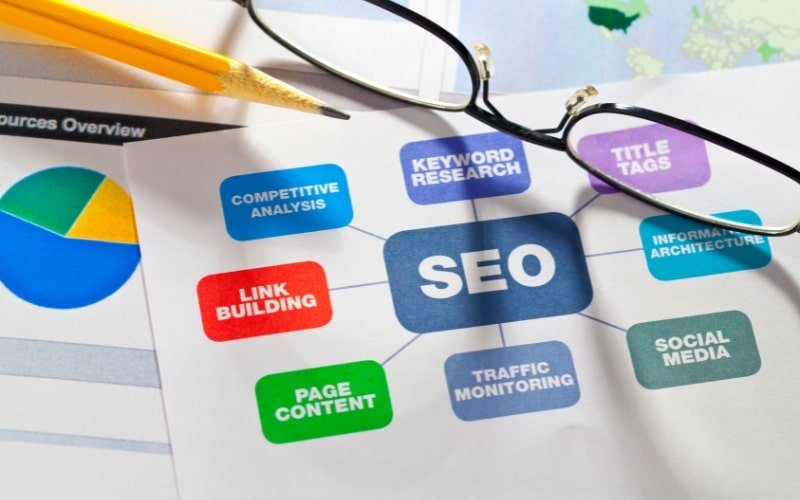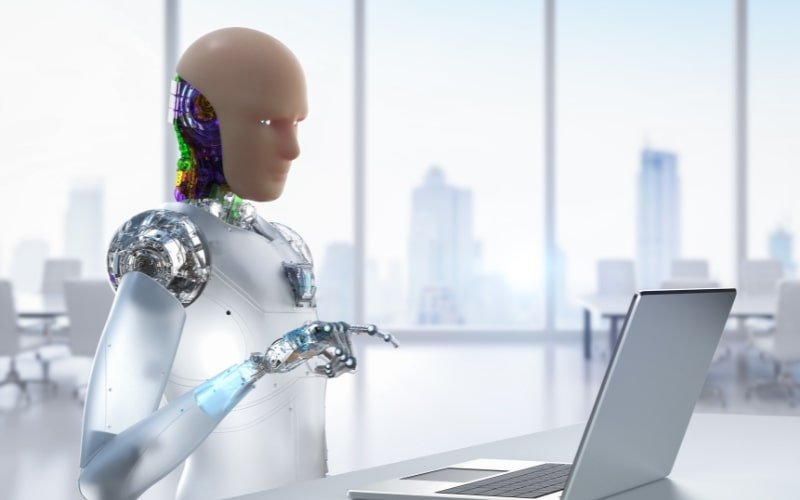In today’s digital landscape, ensuring that your website is fully optimized for search engines and user experience is paramount. Technical SEO plays a crucial role in making sure that your website is not only visible to search engines but also efficient, fast, and easy to navigate. However, performing technical SEO audits has traditionally been a manual and time-consuming process. Fortunately, advancements in artificial intelligence (AI) have made it easier to streamline these tasks, allowing SEO professionals to focus on more strategic activities.
In this article, we’ll dive deeper into how AI is transforming technical SEO, helping to identify issues and automate fixes that ensure websites are optimized for search engine crawlers and users alike.
The Importance of Technical SEO

Before understanding how AI enhances technical SEO, it’s important to recognize why technical SEO is essential. Technical SEO refers to the optimization efforts that help search engines like Google crawl, index, and understand a website. It also involves improving website speed, ensuring mobile-friendliness, fixing broken links, addressing crawl errors, and optimizing website structure.
The ultimate goal of technical SEO is to create a seamless user experience and improve website performance, which in turn helps boost rankings on search engine result pages (SERPs). Poor technical SEO can result in slow page speeds, unoptimized mobile experiences, and issues that hinder search engine crawlers from properly indexing your site. This can lead to lower visibility and a diminished user experience, which negatively affects your overall SEO efforts.
How AI Tools Are Revolutionizing Technical SEO
Traditionally, SEO professionals had to rely on manual audits to identify technical issues, which could take days or even weeks depending on the size of the website. AI-powered tools have drastically reduced the time it takes to audit a website, allowing SEO professionals to detect issues within minutes.
AI tools such as Screaming Frog, SEMrush, DeepCrawl, and Sitebulb can now scan entire websites in a matter of minutes, identifying a variety of technical issues including:
- Broken links: Links that lead to dead pages or 404 errors can harm both user experience and SEO. AI tools quickly identify broken internal and external links across the entire website.
- Crawl errors: Search engine crawlers may encounter difficulties accessing certain pages, which prevents them from being indexed. AI tools highlight these crawl issues and suggest solutions to make the pages accessible.
- Duplicate content: Duplicate content can lead to confusion for search engines, potentially causing your pages to rank lower. AI tools detect instances of duplicate content and recommend strategies to consolidate or eliminate redundancies.
- Page speed issues: Slow-loading pages can increase bounce rates and negatively impact user experience, ultimately hurting your rankings. AI-powered tools assess factors like image sizes, scripts, and server response times, and suggest ways to improve speed.
- Mobile optimization: With the majority of searches happening on mobile devices, ensuring that your website is optimized for mobile users is essential. AI tools can check mobile-friendliness and identify issues that might affect the mobile user experience, such as font size or button placement.
Streamlining Audits with AI
The speed and accuracy with which AI-powered tools can conduct technical audits are one of their greatest advantages. These tools don’t just stop at identifying issues—they go a step further by providing detailed recommendations on how to fix them.
For instance, a manual audit of a large website could take days to crawl every page, check every link, and test every image for optimization. But AI tools like Screaming Frog can crawl a website in minutes, providing a detailed breakdown of every potential SEO issue, from title tag optimization to URL structure. Once the issues are identified, these tools also provide actionable insights on how to resolve them.
Moreover, AI-powered platforms can continuously monitor websites for ongoing technical issues, providing real-time alerts whenever a new problem arises. This proactive approach ensures that technical SEO remains up-to-date, minimizing the risk of performance drops due to unnoticed issues.
Automating Fixes with AI
Beyond identifying issues, AI has the potential to automate certain technical SEO fixes, further streamlining the optimization process. Here are some examples of how AI can automate common SEO fixes:
- Image optimization: Large image files are one of the main culprits for slow website load times. AI tools can automatically compress images without sacrificing quality, significantly improving page speed. For instance, AI algorithms can analyze and resize images based on optimal screen dimensions for various devices, ensuring faster loading times.
- Meta tags and descriptions: AI tools can automatically generate optimized meta titles and descriptions based on the content of a page. This not only saves time but also ensures that each page has a unique, keyword-rich title and description that helps with ranking and click-through rates.
- Structured data markup: Structured data, or schema markup, is a key component of modern SEO as it helps search engines better understand your content. AI tools can automatically add schema markup to relevant pages, which can improve your website’s visibility in rich snippets and other advanced search features.
- Fixing broken links: Broken links negatively impact SEO and user experience. AI tools like Ahrefs and Moz can automatically identify broken links and suggest redirection strategies or link replacements to fix these errors without manual intervention.
Enhancing Mobile SEO with AI

Mobile SEO is now more important than ever, as mobile traffic continues to dominate the digital landscape. AI plays a crucial role in helping websites achieve optimal performance across mobile devices.
AI-powered tools such as Google’s Mobile-Friendly Test and PageSpeed Insights evaluate the mobile experience of a website, offering suggestions on improving load times, adjusting layouts, and enhancing usability on mobile screens. These tools leverage machine learning algorithms to continually update best practices for mobile optimization, ensuring that SEO professionals stay ahead of the curve when it comes to mobile-first indexing.
For example, AI can detect if a website’s mobile version has issues like touch elements that are too close together, unreadable fonts, or non-responsive layouts. By automatically flagging these problems, SEO experts can prioritize fixing them to improve the overall mobile experience, ensuring that users stay engaged with the content.
The Future of AI in Technical SEO
As AI continues to evolve, the role it plays in technical SEO will only grow. In the near future, we can expect AI to take over even more complex tasks, such as:
- Real-time optimization: AI could continuously monitor and adjust technical SEO aspects based on real-time user data, ensuring that the website performs optimally at all times.
- Predictive problem solving: AI may eventually predict future technical issues before they even arise, allowing SEO teams to address potential problems proactively.
- Custom recommendations: Based on a site’s specific needs, AI could provide tailored SEO strategies, offering unique fixes and improvements designed to match the site’s goals and audience.
Conclusion
AI is revolutionizing the world of technical SEO, making the once-laborious tasks of auditing and fixing website issues faster, smarter, and more efficient. From identifying crawl errors and optimizing for mobile to automating complex tasks like image compression and structured data markup, AI-driven tools have become essential for modern SEO professionals.
By leveraging AI in technical SEO, businesses can ensure that their websites are not only optimized for search engine crawlers but also provide a seamless, high-quality experience for users. In an age where website performance and user experience are paramount, embracing AI for technical SEO is no longer an option—it’s a necessity.

